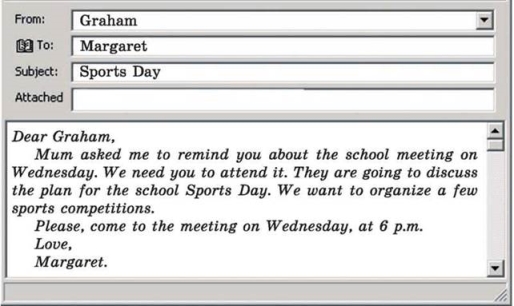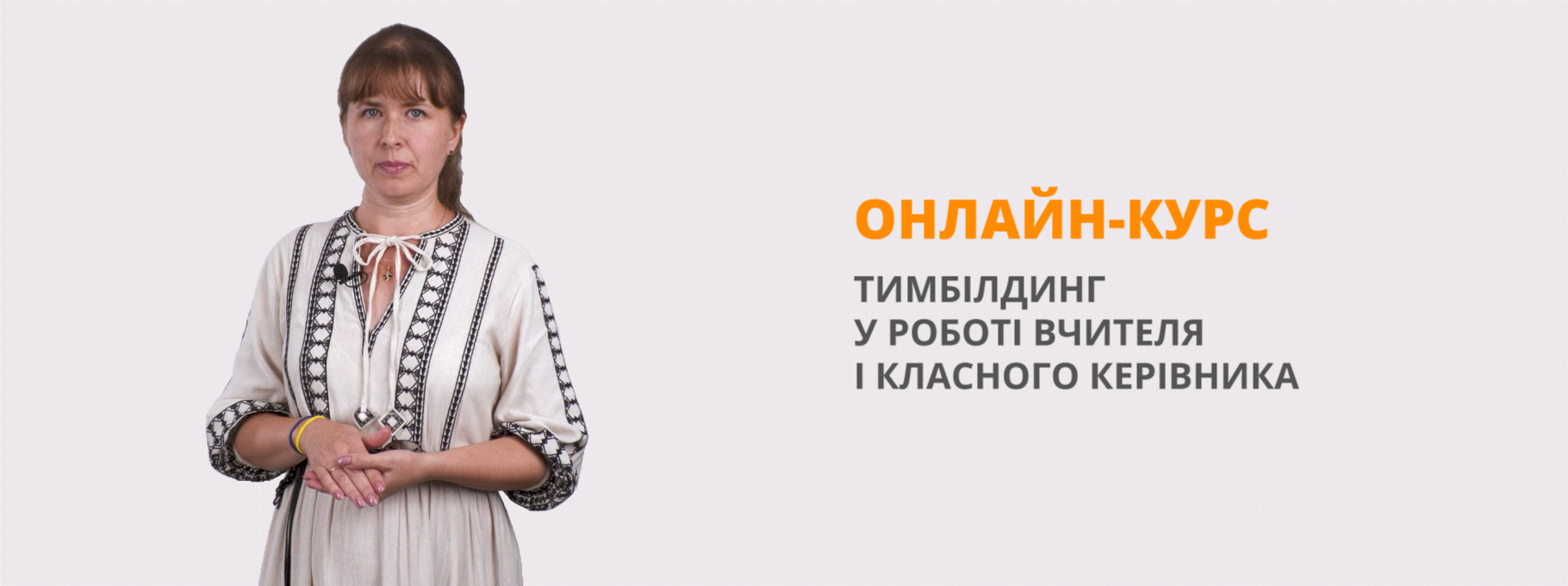Урок "Спортивні клуби"
Form: 6
Theme: Sports Clubs
Lesson’s type: combined
The aims of the lesson:
‒ Practical: to continue to improve students’ skills in speaking, reading and listening; to practice active vocabulary; to practice the using of modal verbs in the sentences.
‒ Educational: to train pupils’ skills according to dialogical speech; to improve their knowledge about different sports.
‒ Developing: to develop students’ memorization, concentration, logical thinking; to continue to form speaking skills and dialogical speech.
‒ Cultural: to bring up the positive attitude to the learning of English, to the sport’s lessons.
Equipments: a text-book “We Learn English” by Alla Nesvit, the interactive board, cards, a blackboard.
Procedure of the Lesson
- Organization moment
T.: Good morning, pupils! How are you today?
Ps: Good morning, teacher! Thank you, we are fine!
T.: I’m glad to hear that. Today our topic is «Sport and Games in our Life». We’ll know new words and some interesting information about different kinds of sport (Slide 1). But firstly, let’s check your home-work.
II. Warm – up
T.: Let’s read a poem about sport.
I like riding by bicycle
I’m fond of playing chess
My friend is good at judo
We are keen as you can guess
On every kind of sport for sure
As it can even the illness cure
And can for every girl and boy
Bring many moments of joy.
The proverb reads for everybody
’’A sound mind in a sound body’’.
T.: Good job!
Exercise «Microphone»
T.: What kinds of sport do you know?
T.: What is your favourite sport?
T.: Do you like sport?
T.: Do you like to ride a bike?
T.: Children! Let’s watch the presentation on the interactive blackboard (Slide 2). As you can see, there are various kinds of sport in our life. I am going to give you some cards. You have 5 minutes to discuss with your partner which of them are sports and which of them are games.
(Skiing, skating, football, rugby, boxing, rowing, horseracing, basketball, golf, running, high jumping, cricket, ice hockey, badminton, tennis, baseball).
- The main body
The developing of dialogical speech
T.: Read, complete and act out the dialogue.
Alex: Hello, Steve? How are you?
Steve:.....
Alex: I’m very tired. Today is my sports day. I go swimming in the morning and then play tennis in the afternoon.
Steve:.....
Alex: Oh, really? I like sport a lot, too. My favourite sport is football.
Do you train at the Sports Centre?
Steve: .... .
Alex: Are you in the school basketball team?
Steve: .... .
Alex: I like watching basketball on TV. Do you like watching sport on TV?
Steve:.... .
T: Good! You are very creative pupils! Your dialogues are nice and unusual!
T.: Now let’s read and know some information about email messages (ex.3, p. 81).
Email Messages are short messages sent from one person to another over the Internet have a specific purpose: to provide information, share ideas with others or entertain quickly deliver information to one person or to many people at the same time.

b) Work in pairs. Take turns to ask and answer the questions (ex.3, p. 82).
1. Why do the children need to attend the meeting at school?
2. When does the meeting start?
3. Who must be present at the meeting?
T.: Ok, please, listen to me and try to guess what sports and games are described here.
1. The sport of moving through the water in a boat without sails (rowing) (Slide 3)
2. The sport of going on horseback (horseracing) (Slide 4)
3. A game played between two teams of eleven players (football) (Slide 5)
4. An outdoor game, popular in Britain played in summer with a ball by two teams of 11 players each, usually dressed in white (cricket) (Slide 6)
5. A game in which the players use rackets to hit a small object called a shuttlecock over a high net (badminton) (Slide 7)
6. A game for two people who use rackets, a small soft ball and a low net (tennis) (Slide 8)
7. A game played by two teams of 6 players each that is played on an ice field (ice hockey) (Slide 9)
8. The sport of fighting with fists (boxing) (Slide 10)
9. The sport of playing a type of football with an oval ball (rugby) (Slide 11).
T.: Very well! Ok, tell us in a few words about it.
P1- Boxing (Boxing is one of the oldest British sports that existed in Saxon times).
P2- Tennis (Tennis is played by both men and women. Tennis was invented in 1872. Wimbledon is associated with a lawn tennis and the first championship at Wimbledon was in 1877. Wimbledon championships are held every May in
London nowadays).
P3- Ice hockey (this game is played by two teams of 6 players each on an ice field).
P4- Cricket (Cricket is the most popular English summer game. It has been played
since the beginning of the 18th century. It is played from May to September. The
game is very beautiful. You need a special field for that game).
P5- Horseracing (Some people say that horse racing is the king of sports in GB.
buy others call it the sport of the kings. Only rich people can afford going it for this
kind of sport).
P6- Rowing (Rowing is the most popular of all kinds of sport at the oldest English
universities. The University Boat Race is a traditional sport competition between
Oxford and Cambridge. It is held at the end of March on the river Thames).
P7- Badminton (Badminton is one of the most popular game played all over the
world. Badminton rules were invented in England).
P8-Football (Football is a winter game in Great Britain, because winters are never
cold. The Football Association Cup is considered the best prize a team can get, and the Final Cup is the most important football event. It is played in May at Wembley Stadium).
P9-Rugby (Rugby football is played by teams of 15 or 13 members. The ball is
oval, not round, and a player is allowed to take the ball in the hand and run with it. Rugby is a violent game and it is a national sport in Wales).
Повторення вживання модальних дієслів в англійській мові
В англійській мові існує група так званих модальних дієслів. Модальні дієслова не вживаються самостійно, а тільки в поєднанні з інфінітивом смислового дієслова і називаються також дієсловами недостатніми, тому що не мають всіх часових форм, які мають інші дієслова.
Властивості модальних дієслів:
1. Модальні дієслова не мають закінчення – s в третій особі однини.
He can read well.
2. Для утворення питальних речень модальні дієслова не вживаються з допоміжними дієсловами.
Can you speak English? (Do you speak English?)
3. Після модальних дієслів інфінітив смислових дієслів вживається без частки to.
He must go home right now.
T.: Excellent! Now read and complete the sentences. Fill in the necessary modal verbs in the questions. Match questions and answers (ex. 6, p. 83).
1. When ... you ski?
2. Why ..... not you ski two years ago?
3. When ... you go skiing in the mountains?
4. When ... you ....... go skiing in the mountains with your friends?
5. What ... you say about yourself as a skier?
a) I was able to go skiing in the mountains last year.
b) I will be able to go to the mountains with my friends next year.
c) I could ski when I was 7.
d) I cannot say that I am a good skier.
e) Two years ago I couldn’t ski because I lived in a warm country.
T.: Read and complete the text. Put the verbs in brackets into the correct tense form (ex. 7, p. 83).
Tom and his schoolmates (1) …. (to play) a match against a team from another school. They usually (2)…(to play) football, but today they (3)…. (to play) basketball. Tom (4)…(to like) playing basketball very much. His team usually (5)… (to wear) white T-shirts, but today they (6)…(to wear) yellow T-shirts. Other children from their school (7)… (to watch) the match. Tom’s team usually (8)… (to win) their matches because they (9) … (to train) a lot. They (10) … (to win) three Cup Finals in the previous three years. They (11 )…(to win) today, too.
T.: One of the most popular game in the world, as in Britain and as in Russia is basketball. Look at your cards. Here you can see some information about basketball. Your task is to read the text and to choose the answer which is right in your opinion.
Basketball was…(1) by Dr. James A. Naismith in Springfield, Massachusetts.
Today, basketball is usually played (2) ….... on a court.
There are ten players in a team but only five of them are on the court at the (3)…...
time. A game consists of two halves of 29 minutes each, so a complete game lasts
(4)….... minute’s altogether. At each end of the court there is a basket and the
object of the game is to throw the ball into the (5)….... basket and score as many
points as possible.
1. a) made b) invented c) called d) born
2. a) out b) in c) into d) indoors
3. a) other b) right c) same d) wrong time
4. a) twenty b) forty c) sixty d) ten minutes
5. a) opponent’s b) team’s c) club’s d) man’s
T.: Well done!
IV. Results of the lesson
T: Today we knew very interesting things about various kinds of sport and games. Your home-task will be to write an email to your friend. In your email:
* inform him / her about the upcoming sporting event;
* ask if your friend would like to take part in it;
* say that you are going to participate in the swimming competition.
So, lesson is over. Good-bye, everyone. See you all tomorrow.
Додаток А.
Card 1
Skiing, skating, football, rugby, boxing, rowing, horseracing, basketball, golf, running, high jumping, cricket, ice hockey, badminton, tennis, baseball.
Card 2
Basketball was…(1) by Dr. James A. Naismith in Springfield, Massachusetts.
Today, basketball is usually played (2) ….... on a court.
There are ten players in a team but only five of them are on the court at the (3)…...
time. A game consists of two halves of 29 minutes each, so a complete game lasts
(4)….... minute’s altogether. At each end of the court there is a basket and the object of the game is to throw the ball into the (5)….... basket and score as many
points as possible.
1. a) made b) invented c) called d) born
2. a) out b) in c) into d) indoors
3. a) other b) right c) same d) wrong time
4. a) twenty b) forty c) sixty d) ten minutes
5. a) opponent’s b) team’s c) club’s d) man’s


про публікацію авторської розробки
Додати розробку
